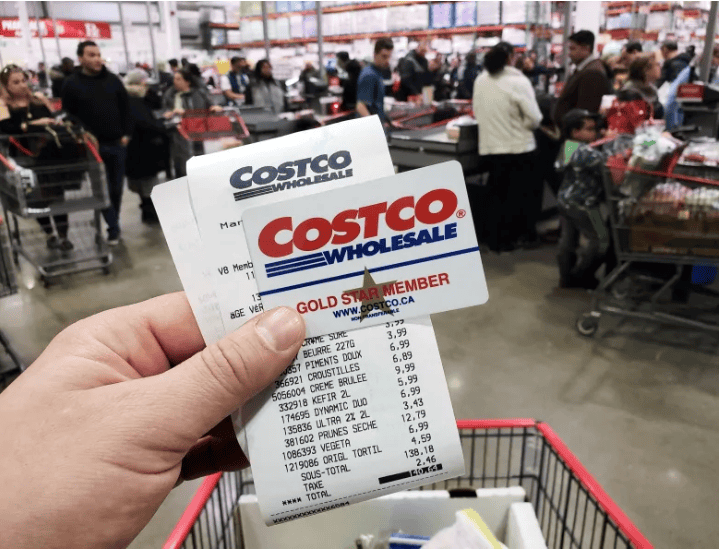
B.C. Civil Liberties lawyer Josh Paterson says signage about bag searches may count as consenting to a search
Security specialist Brian Farr doesn’t shop at Costco very often, but when he does he lets his wife deal with customer service staff when they exit the store.
“I try not to go with her as much as I possibly can because it’s an argument every time I leave,” Farr said over the phone from his home in Burnaby, B.C.
Farr contacted CBC News after he read last week’s story about a B.C. man who filed a human rights complaint because the store checked his backpack and not women’s purses.
For Farr, who has worked in the security industry for about 25 years as a loss prevention agent, supervisor and now a freelance contractor, the issue isn’t about whether the man was discriminated against — it’s about the fact that in most cases retailers, by law, aren’t allowed to search customers’ bags.
“I hate it when I see people having their rights trampled on because [stores] are afraid to lose money,” Farr said.
Unless a security guard has witnessed a crime, Farr and other experts say, bag checks violate a person’s Charter rights, which protect against unreasonable search or seizure. There are also provisions under the Criminal Code that outline the rules under which police, security guards and other citizens must follow in order to arrest someone.
The Charter applies to people and institutions representing the state, but Vancouver lawyer Kyla Lee, who has represented clients who were wrongfully accused of theft and detained, says case law suggests that private security guards are seen as acting on the state’s behalf.
“Stores don’t have that much power to conduct searches of customers bags or searches of any belongings when they’re leaving the store,” Lee said.
CBC News contacted Costco, but the store declined to comment.
Grey area
Other lawyers say the rules aren’t that clear.
Josh Paterson, executive director of the B.C. Civil Liberties Association, agrees that security guards’ power to search are limited. But Paterson says whether a security guard is acting on behalf of the state depends on the circumstances under which they were hired.
For example, security guards hired to open your bag at a folk festival or hired for a wedding because it’s part of the venue’s requirements may not fit that category.
Paterson also says security guards may search a person if they have their permission.
If there are signs that stipulate customers are subject to bag searches, as is the case at Costco, Paterson says that could be construed as consent. Costco, a private club that requires a membership, also stipulates that it reserves the right to check customers’ bags as part of its membership conditions.
Protecting from wrongful prosecution
Craig Patterson, director of applied research at the University of Alberta School of Retailing, says theft is a substantial problem for merchants — especially for stores with tight profit margins.
But Patterson and Farr both say security staff can’t search bags unless they’ve witnessed a crime.
“Laws are not always written to catch bad people. They’re written in such wording to protect good people from wrongful prosecution and harassment,” Farr said.
An innocent person who has been asked to have their bag checked should calmly assert their rights, Farr says, ask what crime they’ve committed and walk away.
Mistakes can be costly
Vancouver lawyer Kyla Lee agrees with Farr’s assessment.
Random bag searches are particularly problematic, Lee says, because in her experience they can reveal discrimination.
“It seems that in the cases I’ve dealt with, the motivation often comes down to the individual’s skin colour,” she said.

In such cases, a person could be entitled to compensation, Lee says, especially if there was a confrontation that could have harmed a person’s dignity or reputation.
The B.C. Civil Liberties Association’s Josh Paterson agrees that random bag searches can be interpreted as discrimination.
‘Not the way to do business’
Farr says it’s cases like those that show why stores should employ properly trained security guards and avoid what could be an expensive lawsuit.
“The joke that we always say in the security industry is if you think hiring good security is expensive, hire a bad one and find out.”
For Farr, his annoyance at policies that require bag searches is a point of pride in his profession.
“That’s not the way to do business. It’s not the way to treat people,” Farr said.
Farr says there are more efficient ways to prevent theft that don’t potentially mess with customers’ dignity, such as placing security guards near items that are frequently taken, and installing beeping anti-theft tags on items.


